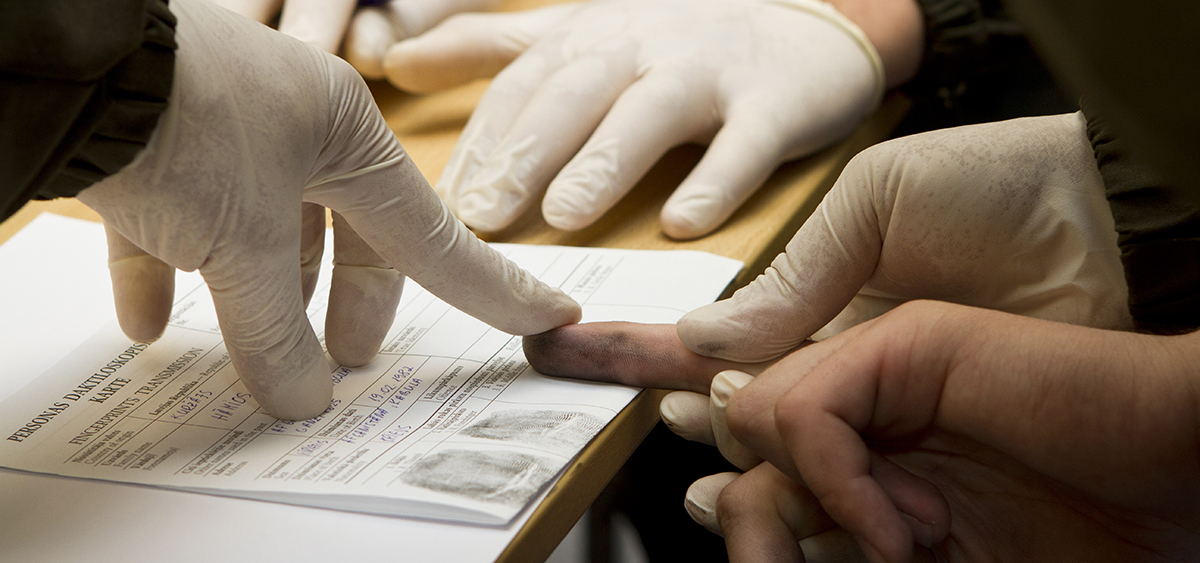People under 18 suspected of committing a crime will have a youth record. In fact, they can have a record as soon as the police stop them. Other organizations might also keep information about the teenager.

Youth Record or Criminal Record?
What is the difference between a youth record and a criminal record? Usually, only adults can have a criminal record. People under 18 who committed a crime will usually have a youth record, not a criminal record. But teenagers who get an adult punishment will have a criminal record.
Who Can See a Youth Record?
The police create records about teenagers after they are stopped. Later, other organizations involved in the case will keep information about the teen as well.
Youth records are usually confidential (secret). People can’t just show up at a police station and ask whether a person under 18 committed a crime.
Only these people can see someone’s youth record, and they need a good reason to see it:
- the teenager’s parents
- the victims (if any)
- the police
- the Organisme de justice alternative or OJA (alternative justice organization). This is a community organization that helps teenagers if an extrajudicial measure or sanction is used in their case.
- youth workers who work in youth centres
- some people who work in the justice system, for example, the teenager’s lawyer, a judge and the prosecutor (a government lawyer officially called the criminal and penal prosecuting attorney)
Previous Convictions
Very few people are allowed to see a youth record. But anyone can ask a teenager if he has any previous convictions. A previous conviction means that the teen was found guilty of a crime in the past.
Teenagers who have never been found guilty of a crime can answer no, they don’t have any previous convictions.
Teenagers found guilty of a crime when they were under 18 and who got a sentence (punishment) are only allowed to say no under these conditions:
- the judge gave them an absolute discharge, or
- they completed their sentence. For example, they did the community service they were ordered to do, obeyed other orders or completed their time under custody and supervision.
People under 18 do not have to ask for a pardon before they can say they have no previous convictions. Only adults must ask for a pardon.
|
Important! People under 18 who are in court for another crime might have to say that they’ve had a previous conviction. |
A Youth Record Can Cause Problems
CEGEP and University
Most of the time, CEGEPS and universities will not ask if a student has a youth record.
But for some programs, students might have to provide a certificate of good conduct or agree to a background check. They can contact the police to get the required documents.
This might be the case for students who will interact with young children as part of their studies. It might also be a requirement for those who want to go to a police academy or become a lawyer.
But people with youth records shouldn’t give up on their study plans without finding out more. There might be a way they can still study what they want.
Getting a Job
Most employers are not allowed to see youth records. But cities and governments can see a teenager’s youth record before it is closed.
Important! Some employers are allowed to do background checks. They can ask these things:
- Do you have any previous convictions? People can say no if they got an absolute discharge or if they completed their sentence.
- Can you provide a document from a police department? People can usually get one after their record is closed. A lawyer can help if a person has trouble getting the document.
What if an employer finds out that a person has a previous conviction? The law says an employer cannot fire the person or refuse to hire him for this reason, unless the crime he committed is related to the job. To find out more, contact Quebec’s Commission des droits de la personne et des droits de la jeunesse (human rights commission).
Travelling
Teenagers who have committed a crime can still travel anywhere in Canada. But they should be careful if they want to travel outside the country.
Customs officers are allowed to ask teenagers questions. The teenager must tell the truth.
Customs officers decide whether people can enter their countries. Each country decides what crimes will stop a person from entering the country.
Can people with youth records travel to the United States? Usually, people are not allowed to enter the United States if they committed a violent crime or a crime involving drugs or prostitution. But the customs officer can still let people into the country if:
- they committed the crime more than 5 years ago, and
- they were under 18 at the time they committed the crime.
|
Important! Lying to customs officers can get you into serious trouble. |





